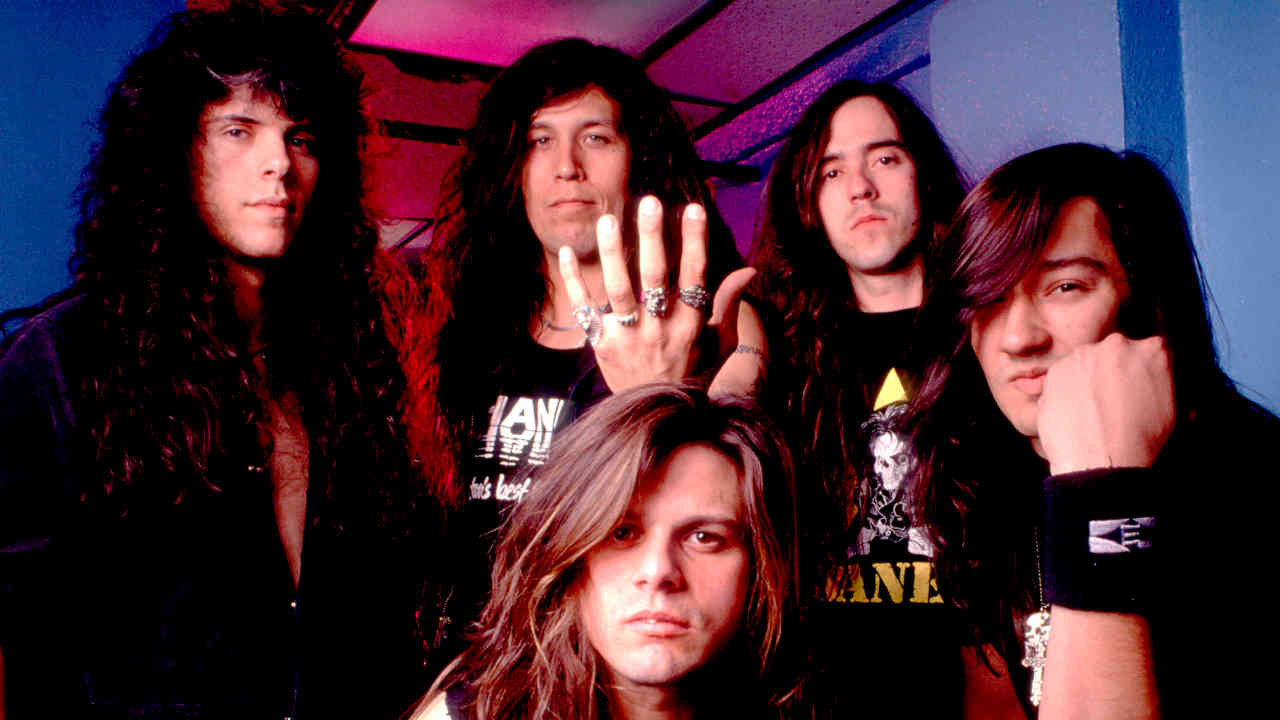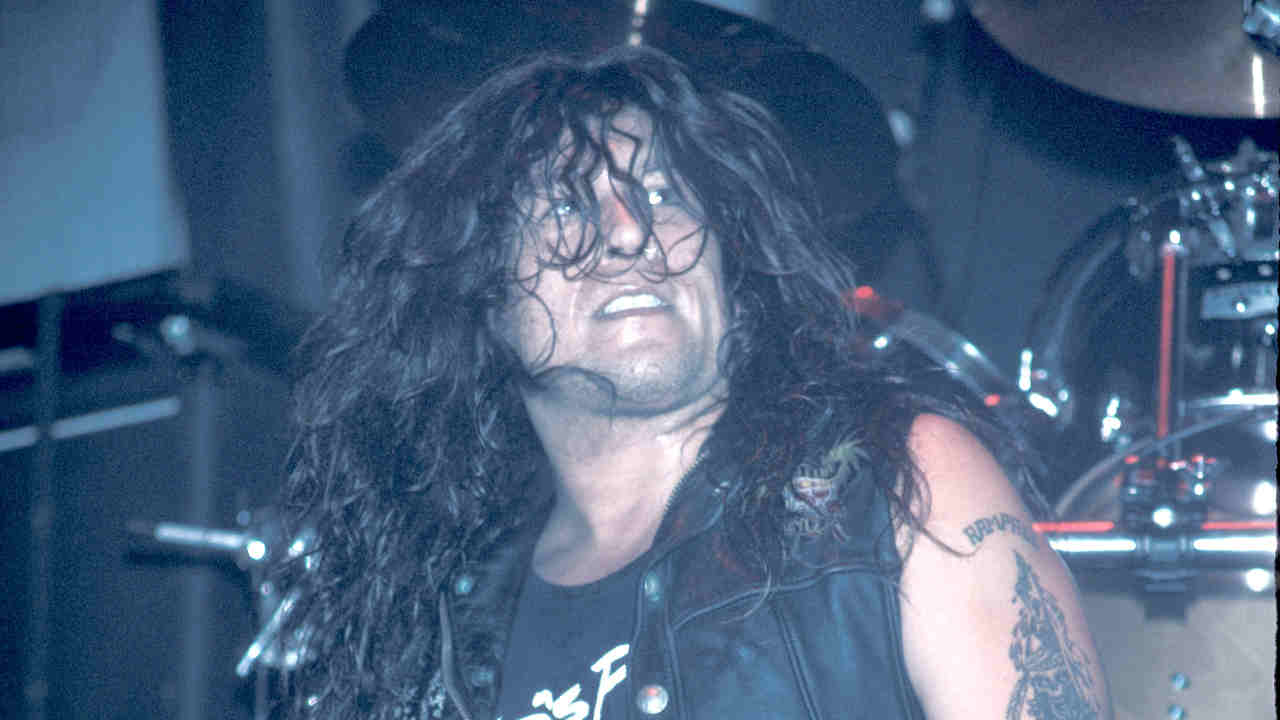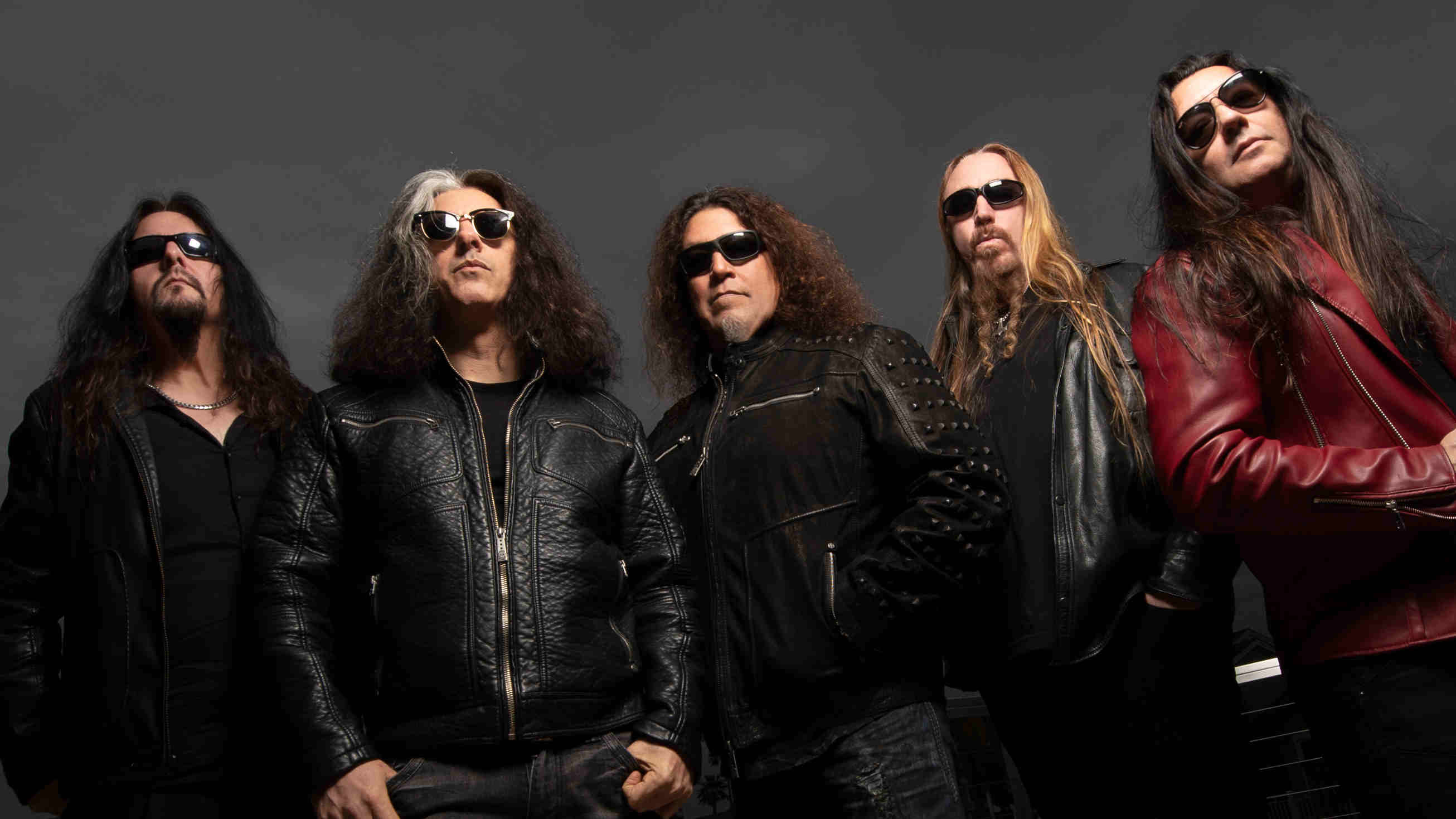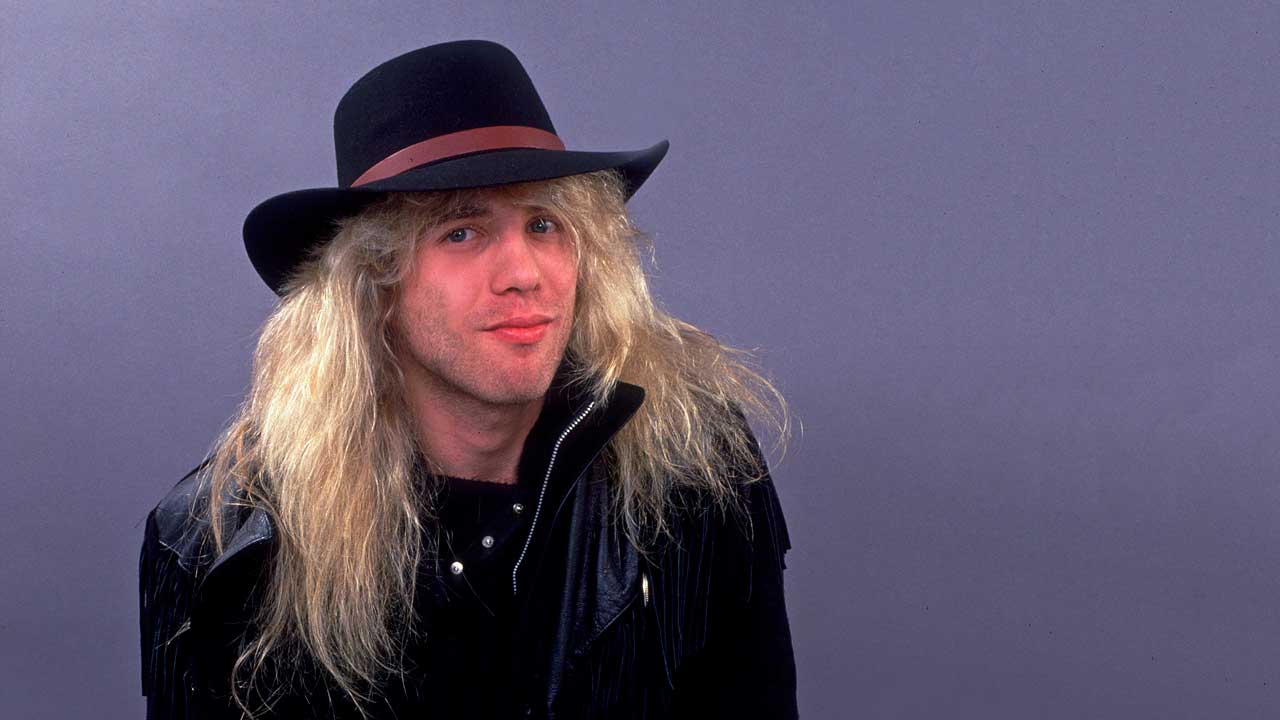“There were opportunities for us to break into the Metallica league. But we never took advantage of them”: the story behind Testament’s debut album The Legacy, an overlooked thrash classic
Testament never scaled the heights of Metallica or Slayer, but their 1987 debut album The Legacy remains a thrash classic

Formed in 1983 as Legacy, Testament were one of the original wave of Bay Area thrash bands. Their 1987 debut album, The Legacy, was an instant classic, even if it never elevated them to the same level as the likes of Metallica and Slayer. In 2007, singer Chuck Billy spoke to Metal Hammer about the album that should have broken them into trash’s premier league.
It should have been The Big Five. It’s unthinkable now, but the ‘Big Four’ of Metallica, Megadeth, Slayer and Anthrax came close to an expansion, with Testament seemingly set to ride hard to glory in the late 80s.
“You know, in the music business, it’s all about timing,” says Testament frontman Chuck Billy. “I don’t look back and regret what may, or may not, have happened. There were moments and opportunities for us to break into the Metallica league. But we never took advantage of these, for various reasons. All I can tell you is that we were made stronger by every failure.”
As the giant vocalist admits, time and timing just eluded Testament, and the Bay Area wolverines have had to be content with cult status. However, in 1987, it was so different, as Testament prepared to shake the world. The band had actually started in Berkeley, California during 1983, under the name Legacy. The leading protagonists were guitarists Eric Peterson (the only member who can claim to have been there every step) and Derrick Ramirez. Vocalist Steve ‘Zetro’ Souza, drummer Mike Ronchette and bassist Greg Christian completed the first proper line-up, but Ramirez quickly left, to be replaced by Joe Satriani-trained prodigy Alex Skolnick.
This was the band who recorded the acclaimed, self-titled four-track demo in ’86, before there was more shuffling of the yowling pack. Ronchette was replaced by Louie Clemente, while Souza was enticed away by Exodus, suggesting one Chuck Billy as the man to step up to the plate.
“Yes, it was Steve who recommended me for the job. He’d been hanging out with my little brother at the time, so spent a lot of time at our house. Now, my brother and I had a band back then called Rampage, although we were more into punk than metal. We’d do stuff by The Plasmatics and the Dead Kennedys, oblivious to the fact that there really was a new era in heavy music opening up.
“Anyway, one day Steve told me that he was leaving Legacy to join this other band, and asked if I wanted to replace him. I was up for that, so he gave me Eric’s number, and I called him.”
Sign up below to get the latest from Metal Hammer, plus exclusive special offers, direct to your inbox!

As luck would have it, Legacy hadn’t even begun to think about who’d replace Souza. So, Billy sneaked in through the open window of fate.
“I phoned up Eric, and went down for an audition. The band clearly liked what I did, and got me back for a second audition. Then it was a case of letting their label hear me, and getting their approval.”
The label in question was Megaforce, run by the larger-than-life Jon Zazula, aka Jonny Z and his wife, Marsha. It was this couple who’d first recognised both Metallica and Anthrax’s talents a few years earlier – now, they’d gotten the full-on throat thrust of Chuck Billy.
“Jonny wanted to hear what I could do. So, we went into a local studio and cut a three-track demo. We did Over The Wall, Burnt Offerings and Raging Waters, sent the tape to Jonny – and I was in.”
One significant decisions had already been made by the time that Billy joined the five-piece. Alex Perialas was on board as producer, and Legacy were to re-locate from the warm climes of the San Franciso area to a studio in the less welcoming weather of Ithaca New York.
“It was a real shock for us! We were Californian kids used to the sun, suddenly flying across America to freeze our asses off in about eight feet of snow; it was that bad. But, in a way, that worked to our advantage. You didn’t want to go out and get a tan, because…where would you have gone? So, we were happy to be locked away in the studio, and work on the album. It was a very productive time.”
Perialas was recommended for the job by Jonny Z. But the band were delighted to go with the choice.
“He’d done the Stormtroopers Of Death album Speak English Or Die a couple of years earlier – and we all loved that. So, to get him was a dream come true. In all, we spent about six weeks at his studio, Pyramid Sound. In fact, we always seem to be in the studio for about that length of time.”
For Billy, there was the added problem of trying to fit in with the band’s style, while also getting used to the rigours and demands of recording. It could have been a stressful scenario for most people. But the man took it all into his stride.
“My vocal style isn’t that different to Steve’s, and our approaches are similar. So, for me, there wasn’t a huge problem in stepping up to his mark. Sure, this band were a little different to what I was used to – perhaps more melodic. But the aggression was dominant, and I could relate to that with no problem. Eric helped out an awful lot here as well. He guided me through the first album, and ensured that I adapted smoothly to what was required.”
There could easily have been a further nightmare for Billy, in that the album was virtually written before he came into the frame. Peterson was involved with all the songs, while Souza co-wrote four of them, namely Over The Wall, Burnt Offerings, Raging Waters and Alone In The Dark. Billy himself was involved with just one song, Do Or Die. However, this was something that never caused the him a sleepless night, or several.
“Why would it? I knew what I was getting myself into, and was comfortable to do the tracks as they were. Did I object to singing someone else’s lyrics? Nope. That was the situation, and I had to deal with it. If I didn’t want to accept what was going on, then I shouldn’t have taken the job.
“In a way, recording The Legacy was about getting to know each other. My feet had barely touched the ground when I got this chance. So, living together for that period of time meant we were far more prepared for the next album, The New Order. By that time we’d gone on the road as well, and felt like a real band, all pulling in the same direction. In fact, we wrote a lot of the songs for ‘The New Order’ on an acoustic guitar in the back of a tour bus. That would never have been possible without that period we had out in Ithaca.”
Naturally, while Legacy – as they were still known – spent a lot of time locked in the studio, there were outlets for fun.
“Hell yeah! There were a lot of bars around Ithaca. It’s a college town, and there was always a bar open somewhere for us to get blasted. And we sure did. Big time. There was a deal of partying going down. In fact, I did the vocals for one song, Reign Of Terror, when I was out of my head. I have to be honest, and admit I sounded so rough that it was probably more death metal than thrash.
“It’s the one song we recorded for The Legacy that never made it onto the final running order. Why? I don’t actually remember. Maybe it was due to my vocals sounding so drunk? Perhaps the record was just too long – you’ve gotta bear in mind that this was the vinyl era, and you had to be very careful how much music you put on, otherwise it all started to sound horrible.” (
Reign Of Terror eventuallu surfaced as a B-side to the Trial By Fire single a couple of years later. However, the band had one significant hurdle to overcome before the album could be released. They would have to change their name to something else. Not exactly a minor consideration.

“We knew that was gonna happen before going into the studio,” shrugs Billy, from a distance of two decades. “We’d found out that there was another band who’d already trademarked the name –I think they were a jazz band, or something. But whatever, we had to come up with something new. It wasn’t a shock for us.”
In the end, the suggestion to go for the name Testament came not from anyone in the band, but from an outsider.
“It was Billy Milano from the S.O.D. [Stormtroopers Of Death]. He called up Jonny Z, and put this idea forward. We immediately liked it, and Eric started to play around with a logo – and, once we saw that, it all made sense. In fact, we also approved of the notion that the words ‘Legacy’ and ‘Testament’ mean similar things. So, it wasn’t a seismic change. We always intended, though, to call the album The Legacy. We wanted some sort of connection with what had gone before.”
Released in June, 1987, The Legacy quickly got the attention of the metal underground, and lifted the newly-renamed Testament into an elite force who could challenge the very best. As Billy admitted earlier, they never took the ball and ran with it. Now, he looks back at the era as being one of hope rather than fulfilment.
“I do think the album turned out very well for what it was. But it could have been so much better. I believe mistakes were made in the studio, in how we approached the project, and also the techniques and equipment that were at our disposal. With hindsight, the recordings suffered as a result.
“We actually wanted to get hold of the master tapes a few years ago, so that we could re-mix the thing. But Atlantic (who owned the rights to the Megaforce back catalogue) refused to give us these back. In the end, we re-recorded four songs for our First Strike Still Deadly album in 2001 (Burnt Offerings, The Haunting, Alone In The Dark and Over The Wall), and the new versions are heavier than the originals. That’s the reason we did this, because Atlantic wouldn’t allow a re-mix. But with hindsight this was a blessing. Re-mixing wouldn’t have given us the desired effect.
“But, I don’t wanna knock what we did with the album. It was important at the time, and gave Testament a massive springboard for a successful career that’s ongoing. All of us are grateful for what this has meant.”
To the rest of us, The Legacy remains one of thrash metal’s true landmark albums.
Originally published in Metal Hammer issue 168
Malcolm Dome had an illustrious and celebrated career which stretched back to working for Record Mirror magazine in the late 70s and Metal Fury in the early 80s before joining Kerrang! at its launch in 1981. His first book, Encyclopedia Metallica, published in 1981, may have been the inspiration for the name of a certain band formed that same year. Dome is also credited with inventing the term "thrash metal" while writing about the Anthrax song Metal Thrashing Mad in 1984. With the launch of Classic Rock magazine in 1998 he became involved with that title, sister magazine Metal Hammer, and was a contributor to Prog magazine since its inception in 2009. He died in 2021.


